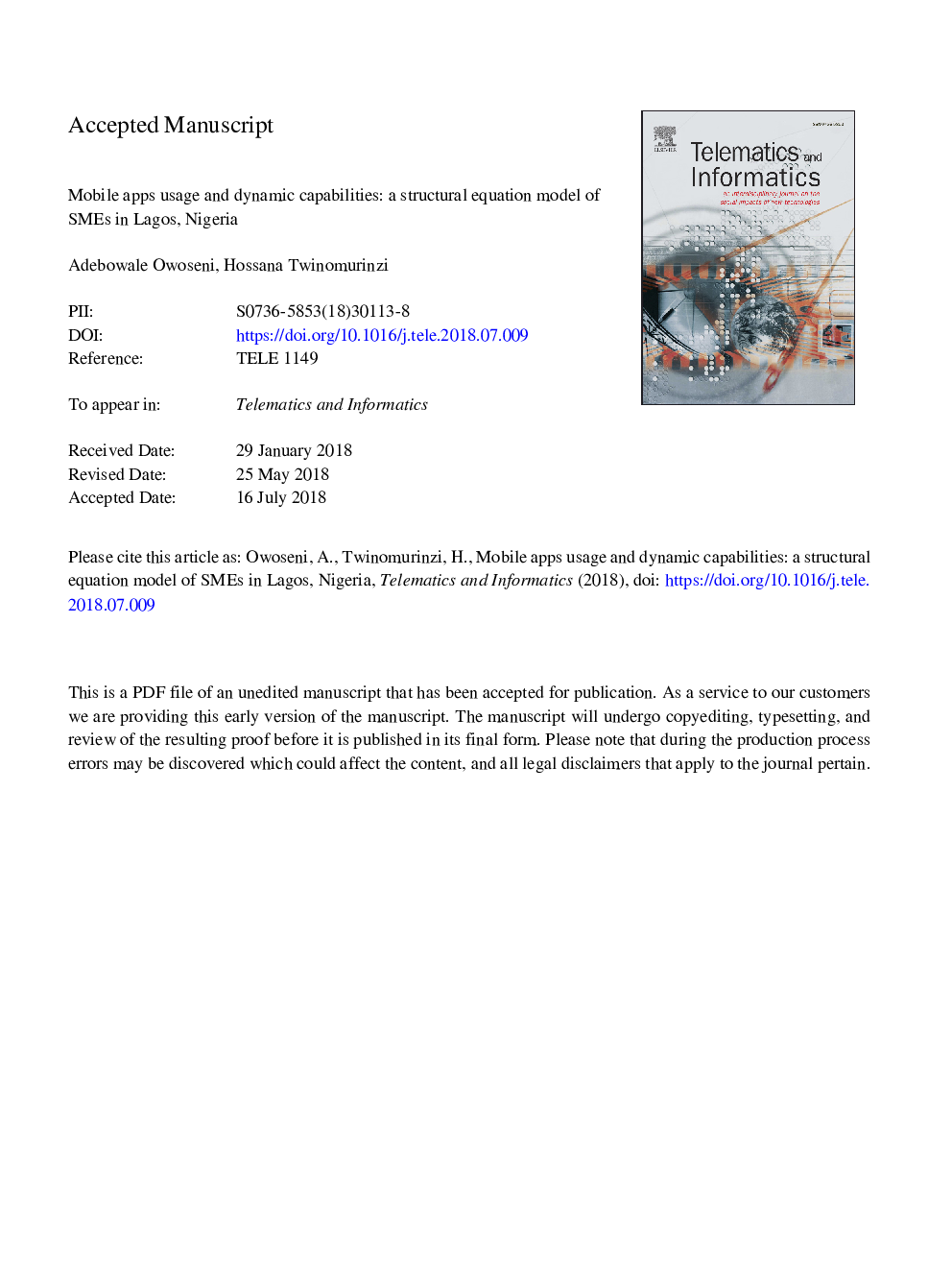| Article ID | Journal | Published Year | Pages | File Type |
|---|---|---|---|---|
| 10225849 | Telematics and Informatics | 2018 | 26 Pages |
Abstract
Significant knowledge exists regarding the application of dynamic capability (DC) frameworks in large firms, but their impact on smaller organisations is yet to be fully researched. This study surveyed 1162 small and medium sized enterprises (SMEs) in Lagos in an effort to understand how SMEs in developing country contexts use mobile apps to enhance their businesses through DCs. Through the use of the covariance-based structural equation modelling (SEM) technique, the study explored the fitness of a conceptual formative model for SMEs. The model assembled 7 latent variables namely: mobile app usage, adaptive capability, absorptive capability, innovative capability, opportunity sensing ability, opportunity shaping ability and opportunity seizing ability. Subsequently, 15 hypotheses aimed at testing the relationships between the latent variables were developed and tested. The findings revealed that mobile app usage increases the adaptive, absorptive and innovative capabilities of SMEs. Absorptive capabilities help SMEs to maximise opportunities, while innovative capabilities negatively influence SMEs' tendency to maximise opportunities. The results failed to establish a direct relationship between mobile app usage and SMEs' ability to maximise opportunities. The research outcomes indicate that SMEs in Lagos respond to opportunities innovatively but they seldom exhibit innovation in order to create opportunities. The heterogeneous nature of SMEs complicates any clear-cut narrative as to how SMEs in Lagos should employ mobile apps to create and maximise opportunities. However, mobile apps could induce innovation and, as such, impact significantly when developed and applied to the contextual requirements of SMEs. The research revealed the untapped potential of SMEs' mobile app usage in Lagos.
Keywords
Related Topics
Physical Sciences and Engineering
Computer Science
Computer Networks and Communications
Authors
Adebowale Owoseni, Hossana Twinomurinzi,
